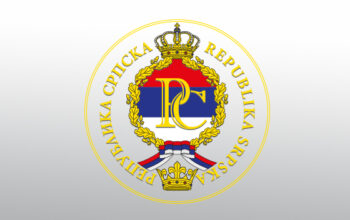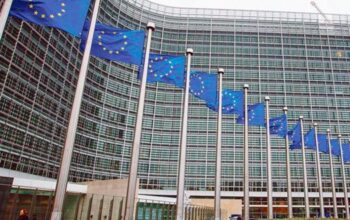On his blog, the head of the EU Delegation to BiH, Johann Sattler, outlines the “significant steps forward” that BiH has taken since Sattler took up his position a year ago.
The text of Ambassador Sattler’s blog post is below.
Our Partners Are the People
02.09.2020
By Johann Sattler
When I took up my duties as the Head of the EU Delegation to Bosnia and Herzegovina and European Union Special Representative a year ago, I was well aware of the challenges that BiH and the region were grappling with – I had been working in the Western Balkans, or on issues related to the this region, for more than two decades. Yet I believed that many of the difficulties could be overcome. A year on, I still hold the same belief. Over this past year, despite a global pandemic, Bosnia and Herzegovina has taken seemingly modest but, at a closer look, significant steps forward.
Some hold a cynical view that many of the diplomats and experts who come to this country are content with simply going through the motions, refusing to acknowledge that the political system is irredeemably flawed and that the prospect of European integration is no more than a pipe dream.
I argue the contrary. The European Union is committed to ensuring that BiH is irreversibly on track to become a member of the Union. We are working on this goal together with our BiH partners – and not just political partners – in order to deliver concrete benefits to citizens. The EU’s commitment is reflected in millions of euros of assistance annually. It is reflected in our constant support to the country through advice on and facilitation of its political, economic and structural priorities for BiH to achieve necessary progress.
Yes, the political system is flawed, but it can be improved, as in any country. We know perfectly well that it is not likely to be changed by those who benefit from the status quo but there are also a number of those among them who are deeply committed and ready to work for change. Citizens have a powerful interest in changing the ways in which issues with a profound impact on their everyday lives are currently handled.
And EU integration is all about delivering change. It is about strengthening and upholding the rule of law, and putting citizens – not parties – at the centre of political life.
We are accompanying BiH in these changes by working with engaged citizens, through the media, through institutions, and through activism exercised outside and inside parties.
At the start of my mandate in September 2019, over ten months had passed since the previous elections in BiH and a new Council of Ministers had still not been appointed. There was general and entirely understandable public scepticism about the capacity of the parties to reach agreement on the allocation of ministries, never mind the implementation of socio-economic reforms.
But in December, agreement was reached. The Council of Ministers was appointed and the EU and other international partners immediately engaged with the new authorities.
The same month, the EU Council welcomed the European Commission Opinion on BiH’s membership application that identified 14 key priorities on which the country needs to act to strengthen democracy and functionality of the state, improve the rule of law, uphold and guarantee the fundamental rights of citizens as well as to make public administration more efficient. The work on these key priorities needs to continue even during the pandemic because progress on them would also enable a sounder response to COVID-19.
In April 2020, the BiH Presidency formally committed to implementation of reforms necessary to fulfil the 14 key priorities. It set out an inclusive process aimed at accelerating BiH’s progress on its integration path.
There have already been tangible dividends. In May 2020, Bosnia and Herzegovina was able to take an active and constructive part in the EU-Western Balkans Zagreb Summit, thanks to crucial last-minute preparations.
By the end of June, the RS Government had adopted the Public Administration Reform Strategic Framework for BiH. The Strategic Framework is an indispensable step towards a more efficient public administration in BiH, able to deliver for citizens in line with EU standards.
Following numerous intense rounds of talks, the BiH Election Law was amended in July finally enabling, after 12 long years, Mostar residents to exercise their voting rights in municipal elections, now scheduled for December 2020. This was an essential step towards meeting the Number 1 on the list of Opinion key priorities on free and democratic elections.
That same month, we also saw long-awaited and pivotal progress on another Opinion key priority – the adoption of the Rules of Procedure for the Stabilisation and Association Parliamentary Committee, BiH’s formal body for cooperation with the European Parliament.
It should be noted that the bulk of the progress made was achieved in the midst of the COVID-19 pandemic and it was achieved because we joined up with the US and other constructive partners on the ground, making it impossible for political operatives to continue playing ‘divide and rule’ games.
In the meantime, the disbursement of the EU’s €80 million aid package to help Bosnia and Herzegovina address the pandemic’s immediate consequences and longer-term strategic challenges has begun. It includes €7 million for immediate medical needs, which is being delivered to hospitals and health institutions across the entire country.
A further €250 million is being made available via the EU’s Macro-Financial Assistance programme. The lack of cooperation and coordination by the BiH authorities caused long delays in the negotiating process of this programme. These delays are only adding to public concern about the capacity of the authorities to operate effectively, especially amidst a pandemic.
But, as I have pointed out, the EU doesn’t work only with politicians. Our partners are the school teachers, the activists, the doctors, nurses and other hospital workers, the entrepreneurs, shopkeepers, professionals and others who have confidence in this country’s future and who are actively engaged in making that future better than its past.
I meet people every day who are living proof that Bosnia and Herzegovina can and is doing better than its politics make it seem, whether it is a cultural operator like Elma Hašimbegović, director of the Historical Museum in Sarajevo which is currently hosting an EU-funded exhibition showcasing the country’s rich European industrial heritage, and who is keeping the Museum active in spite of minimal public funding; the legendary retired General Jovan Divjak, still a tireless activist engaging young people on building a brighter future; or a young artist like Rikardo Druškić, who is cooperating with my team and fellow young artists to design murals celebrating solidarity and inclusion around the country.
But the stories of BiH’s remarkable people extend far beyond the headlines. In fact, the more people I meet in BiH, the more I am humbled, as a fellow European, by their enduring strength and character. The dignified advocacy of Emsuda Mujagić, President of the “Srcem do mira” Association in Prijedor, 48 members of whose family were killed, who is still dedicating her time today to raise awareness of the importance of the continued search for the remains of hundreds of civilian victims from Prijedor. The selfless sacrifice of Vanja and Kenan from “Tim volontera/Heroji ulice” who joined forces with Pomozi.ba volunteers in Sarajevo, Miroslav running “Mozaik prijateljstva” in Banja Luka, Nina and her colleagues running “Minores” in Mostar, all of whom came forward in the hour of need for their fellow citizens when COVID-19 hit. Just last week I met Nurka, a caregiver for her son, who, after 25 years as an internally displaced person, finally moved into her new home in Kakanj, built within the EU-funded Regional Housing Programme, with tears and hope in her eyes.
They are why I believe that the status quo can be changed – and changed for the better. I also believe that the immediate and long-term steps being taken to battle COVID-19 and its consequences – with the EU’s support – can further empower progressive elements in BiH society.
And yet, I am still not satisfied with BiH’s pace in the EU accession process. A lot of precious time has been lost.
After what has been the most unusual and challenging year for us all, I am even more confident that the grounds for optimism outweigh those for cynicism as well as in my commitment to redouble my efforts in favour of progress of the country and its people on the EU path.
If anything, this past year has shown that no global crisis can stand in the way of the EU aspirations of citizens in Bosnia and Herzegovina, as the partnership between the EU and people across the country only deepened.
As Europe embarks on a tough journey of recovery and we jointly paint a new vision of the future, citizens’ voices must lead the way.


